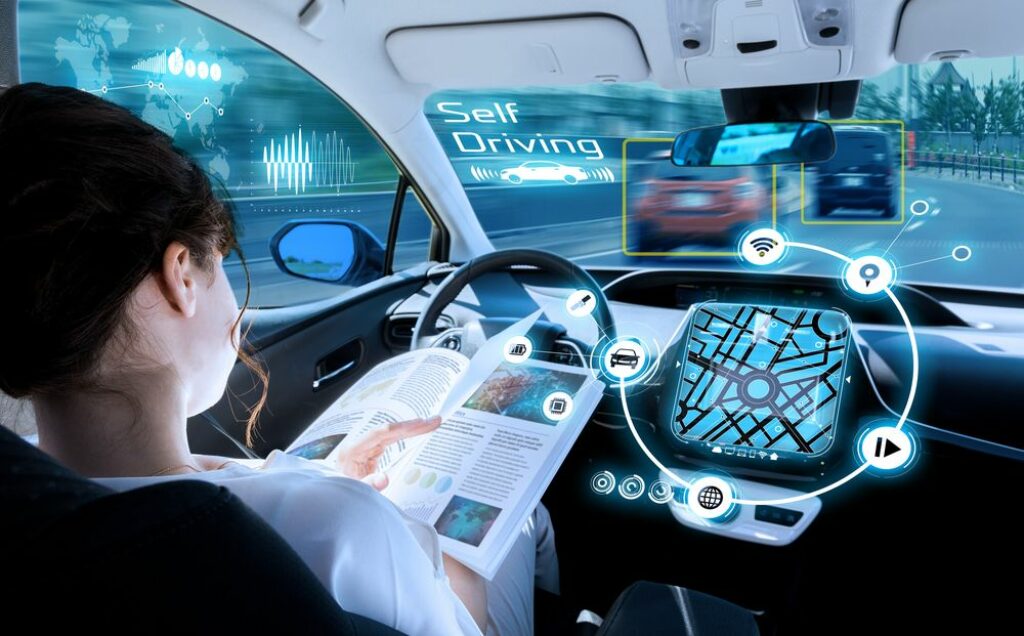
Self Driving Cars
Cars may not be flying around in the air yet, as they promised the world they would many decades ago. On the bright side however, the next best thing is finally in serious development – Self driving cars. These highly advanced models are hailing the start of a new travel era.
Related Topics (Sponsored Ads):
Self-driving cars, also known as autonomous vehicles, are quickly revolutionizing the automotive industry and redefining the future of transportation. These vehicles are specially designed to operate without human intervention, utilizing advanced technology to sense and navigate the surrounding environment. This is especially wonderful news for those who struggle with driving a car on the roads or parking it in general, due to anxiety or physical / or neurological disabilities.
This article will delve into the concept and functionality of self-driving cars and their various features. We will also provide the in – depth advantages, suitability in various scenarios and semi self-driving car features, along with the most developed models in the market and the availability for purchase.

Concept and Functionality
Self-driving cars operate on the principles of artificial intelligence, machine learning, and sensor fusion. They are equipped with a myriad of sensors, including cameras, radar, LiDAR, and ultrasonic sensors, which continuously gather data about the vehicle’s surroundings. This data is then processed by onboard computers to make real-time decisions, enabling the vehicle to navigate, accelerate, brake, and make lane changes without human intervention. Pretty impressive, isn’t it?
Typical Features
These automated cars are equipped with a range of advanced features that contribute to their autonomy. These include lane-keeping assist, which ensures the vehicle stays within its lane, adaptive cruise control that automatically adjusts the car’s speed to maintain a safe following distance, and advanced sensors that provide a 360-degree view of the vehicle’s surroundings. Additionally, these cars are integrated with high-definition mapping systems and robust connectivity, which enable it to communicate with other vehicles and infrastructure with ease.
The Advantages
The adoption of self-driving cars promises a multitude of benefits. Foremost among these is improved safety, as autonomous vehicles are designed to minimize human errors, which are a leading cause of accidents.
Furthermore, these vehicles have the potential to reduce traffic congestion by optimizing traffic flow and minimizing stop-and-go patterns. As previously mentioned, they also hold the promise of increased accessibility for individuals with disabilities, providing newfound independence and mobility.
Suitability in Various Scenarios
Overall, these self-driving cars are well-suited for a variety of scenarios, including urban environments, long-distance travel, and ride-sharing services. In urban settings, autonomous vehicles can efficiently navigate dense traffic and complex road networks, reducing the overall congestion. For long-distance travel, self-driving cars offer the convenience of hands-free driving, allowing passengers to relax and engage in other activities during the journey. Also, in regards to ride-sharing, autonomous vehicles can be utilized to provide convenient and cost-effective transportation services.
Semi Self-Driving Car Features
Many vehicles are also equipped with semi self-driving features that contribute to a partial autonomous driving experience. These include parking assist, which allows the vehicle to autonomously maneuver into parking spaces, automatic braking systems that enhance safety by detecting potential collisions and applying brakes as necessary, and speed control systems that adjust the vehicle’s speed based on traffic conditions and speed limits.
Most Developed Self-Driving Car Models
Several automobile manufacturers have made significant strides in the development of self-driving car technology. The following models have received high acclaim and boast the most advanced autonomous features, such as highway driving assistance, traffic jam assistance, and autonomous parking capabilities.
1. Tesla Model S: Tesla’s Model S offers advanced autonomous features through its Autopilot system, including lane-keeping assist, adaptive cruise control, and self-parking. With regular over-the-air updates, the Model S continues to improve its autonomous capabilities, setting the benchmark for self-driving technology in the automotive industry.
2. Waymo One: Developed by Waymo, a subsidiary of Alphabet Inc., the Waymo One is a fully autonomous vehicle that has undergone extensive testing and is now offering commercial ride-hailing services in select areas. The Waymo One is equipped with a comprehensive sensor suite and cutting-edge AI technology, making it one of the most advanced self-driving vehicles available.
3. Audi A8: The Audi A8 features the Audi AI Traffic Jam Pilot, which enables the vehicle to autonomously navigate through traffic jams at speeds of up to 37 mph. This system combines adaptive cruise control with lane-keeping assist, providing a semi-autonomous driving experience that enhances comfort and safety during congested traffic conditions.
Availability And Future Expectations
While fully autonomous vehicles are still undergoing regulatory scrutiny and technological refinement, semi-autonomous vehicles with advanced driver-assist features are currently available for purchase. These vehicles offer a glimpse into the future of self-driving cars, providing consumers with a taste of the benefits of autonomous technology.
However, it’s important to note that the availability of self-driving cars for purchase may be subject to regional regulations, and consumers are advised to stay informed about the latest developments and legal requirements in their respective areas.
As the technology matures and regulatory frameworks adapt to accommodate autonomous vehicles, the availability of self-driving cars for purchase is expected to expand. Major automotive manufacturers, as well as technology companies, are investing heavily in the development of self-driving technology, with the goal of bringing fully autonomous vehicles to the consumer market.
Final Thoughts
Lastly, it’s worth noting that as the technology progresses, it’s crucial to consider the evolving legal and ethical implications of autonomous vehicles, including liability, privacy, and major cybersecurity concerns.
Bottom line – In order for them to be safe and trustworthy to use, these areas will have to be perfected first before fully automated cars can be released and mass produced.




